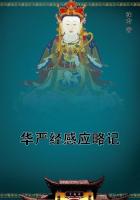Priestley, 206, 219, 229, 344, 473-474
Pringle, Art. xvii., 109.
Probable Evidence, 103, 242.
Puffendorf, 26, 40, 59, 79, 100.
Quality, 289.
Qualities, Primary and Secondary, 70 (Hutcheson), 210(Locke), 214 (Reid).
Ramus, 22.
Reason and Reasoning, 237 (Beattie), 288 (Stewart).
Rebellion of 1715, 39; of 1749, 86
Reid, Art. xxvi., 182-227, 4, 6, 8, 10, 35, 46, 48, 55, 95, 96, 99-100, 102, 103-105, (influence of Turnbull), 108, 144, 145, 158, 159-160, 172, 188, 193, 228, 236, 248, 265, 267, 273-274 (contrasted with Kant), 275, 279, 279, 292, 300, 315, 322, 325, 326, 333, 378, 395, 404, 424, 436, 443, 454, 473-476.
Relations, 139 (Hume), 141 (John S. Mill and Bain), 330-331(Brown), 415, 441-442 (Hamilton).
Relativity, 160, 216, 385-386, 442 (Hamilton), 443-445.
Remuat, 293, 303
Revolution Settlement, 16
Reynolds, 233
Riccalton, 25
Robertson, 123, 129, 186, 269, 281.
Rousseau, 128.
Royer Collard, 272, 302, 436.
Rundle, Bishop, 98.
Ruskin, 78, 296.
Rutherford, 24, 92, 93
St. Andrews University, 23, 394
Saisset, 433
Scepticism, how to be met, 156-161, 302.
Schelling, 10, 274, 303, 443
Scotland, State Of, 11-22; North-east of, 91-94; South-east of, 109-111; South-west of, 61, 63, 92.
Scott, Sir Walter, 271, 283, 341, 412.
Seceders, 18, 88, 90.
Self-Evidence, 46 (Carmichael), 237 (Beattie), 224, 447(Reid).
Self known, 289-290.
Sensation and Perception, 211-212 (Reid).
Sensational School, 94, 280.
Sense, Internal, 75, 76 (Hutcheson), 84, 150. (Hume), 175(Kames), 192, 309 Sense Perception, 69-71 (Hutcheson), 171, 172 (Smith), 208-216 (Reid), 368-369(Young), 379 (James Mill), 432-435 (Hamilton).
Seventeenth Century, 12-16.
Shaftesbury, Art. iv. 29-36, 41, 55, 75, 98, 101, 105, 120, 150, 185, 186, 220, 221.
Signs, Natural, 211 (Berkeley and Reid).
Simson, John, 51-52, 59
Simson, Robert, 60, 63, 463.
Smith, Adam, Art. xxi., 162-173; 8, 21, 27, 62, 85, 129, 130, 162, 260, 275, 338, 415Smith, Stanhope, 188.
Smith, Sydney, 21, 283, 339
Social Affections, 78 (Hutcheson).
Space, 47 (Baxter), 74 (Hutcheson), 137, 338 (Hume), 213(Hamilton), 252 (Monboddo), 262 (Hutcheson), 305(Stewart), 396 (James Mill), 443 (Hamilton).
Spalding, 292.
Spencer, Herbert, 405, 460.
Spinoza, 112.
Stair (Lord), 24.
Sterling, 422.
Stevenson, Art. xv., 107-108.
Stewart, Art. XI., 275-307; 1, 4, 6, 8, 10, 21, 27, 44, 95, 99-100, 103, 209, 220, 260, 270, 281, 318, 319, 322, 325, 332, 339, 344, 345, 378, 388, 392, 394, 403, 415, 424, 439Stillingfleet, 27.
Stoic Philosophy, 120, 259
Style, 84 (Hutcheson), 122 (Hume), 163 (Smith), 167 (Hume and Smith), 194 (Reid), 234 (Beattie), 240 (Campbell), 260 (Ferguson), 280, 308 (Alison), 322 (Brown), 418-419(Hamilton).
Substance, 75 (Hutcheson), 136 (Hume), 299 (Stewart), 337(Brown), 398 (Chalmers), 442 (Hamilton).
Suggestion, 211 (Reid), 323 (Brown).
Sykes, 161.
Syllogism, 40 (Carmichael), 72 (Hutcheson), 451-452(Hamilton).
Sympathy, 168-169 (Smith).
Taste, 36, 191, 225 (Reid).
Theism and Theistic Argument, 41-42 (Carmichael), 45-47(Baxter), 175 (Kames), 307 (William Lawrence Bro.n), 332 (Thomas Brown), 363-364 (Bro,igham), 376 (James Mill), 402-403 (Chalmers), 445-446 (Hamilton).
Theses in Universities, 22.
Thompson, Archbishop, 292, 453
Time, 47 (Baxter), 70-74 (Hutcheson), 137-138 (Hume), 216(Reid and Hamilton), 251-252 (Monboddo), 262 (Hume), 383, 386 (James Mill), 443 (Hamilton).
Turnbull, Art. xii., 95-106, 4, 35, 105, 135, 161, 195, 216, 386.
Tutors, Private, 43, 61, 97
Ulrici, 422.
Ulster, 8, 49, 63
Uniformity of Nature, 291 (Stewart), 40 (Chalmers).
United States, 9, 183-190
Urquhart, 25.
Utilitarianism, 114, 128.
Villers, 319
Virtue, 33 (Shaftesbury), 80-85 (Hutcheson) ,151 (Hume), 169(Smith), 337 (Brown), 359 (Mackintosh).
Voltaire, 120, 257, 295
Vossius, 22.
Warburton, 125
Welsh, Art. iv-, 408-410; 22.
Wesley, 16.
Whately, 243, 444-449
Whewell, 292, 293.
Whitfield, 16, 65, 88, 167, 467.
Will, 149 (Hume), 183 (Edwards), 2,6 (Reid), 251 (Monboddo), 265 (James Gregory), 266 (Crombie), 336, 346, 388(James Mill), 400-401 (Chalmers).
Wilson, lvi., 410-414; 8, 285, 322.
Wit, 56 (Hutcheson), 236 (Beattie), 242 (Campbell).
Witherspool, Art. xxiii., 183-190; 83-84, Wodrow, 37, 39, 59, 63Wolf, 277.
Wordsworth, 410
Notes:
[2]Mr. Buckle, in his "History of Civilization," vol. ii., professes a deep ac quaintance with the Scottish metaphysicians of last Century, who are represented by him as proceeding in the deductive, and not in the inductive, method. He adds, that in Scotland "men have always been deductive." But Mr. B. was never able to understand the difference between the method of deduction on the one hand, and the method of induction with consciousness as the agent of obser vation, on the other: the former derives consequences by reasoning from princi. ples, the latter reaches principles by internal observation. That his whole views on this subject were confused is evident, from the circumstance that he represents women as proceeding (like Scotchmen) by deduction!
[3]See "Considerations on Patronage, by Francis Hutcheson,"1735.
[4]Mr. Buckle is reported to have expressed, in his dying days, bis regret that he could not see moral causes operating in the promotion of civilization. Of course intellectual power must always be the immediate agent in producing civil ization; but did it never occur to Mr.
Buckle to ask what stirred up the intellec tual power in a country so unfavorably situated as Scotland? It is all true that steam power is the main agent in producing manufactures in our country; but how contracted would be the vision of one who can see only the steam power, and not the intellectual power which called the steam into operation!














